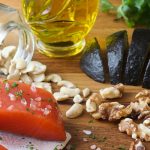The Link Between Dairy and Prostate Cancer
A high consumption of dairy products, like milk and cheese, appears to be associated with an increased risk of prostate cancer, according to research published in The Journal of the American Osteopathic Association.
Researchers note that prior studies have shown dairy products are the primary source of calcium in Western countries, where rates of prostate cancer are high. Conversely, there are lower rates of prostate cancer in Asian countries, where intake of dairy products is low.
The study authors found no clear association of increased risk of prostate cancer linked to other animal-based foods, including red and white meat, processed meats and fish. However, they identified a decreased risk of prostate cancer associated with plant-based diets.
“Our review highlighted a cause for concern with high consumption of dairy products,” says John Shin, MD, a Mayo Clinic oncologist and lead author on this study. “The findings also support a growing body of evidence on the potential benefits of plant-based diets.”
The researchers reviewed 47 studies published since 2006, comprising more than 1,000,000 total participants, to better understand the risks of prostate cancer associated with plant- and animal-based foods. While patterns of association emerged, Dr. Shin says more investigation is needed to understand the nature and strength of those associations.
The lifetime risk of prostate cancer in the U.S. is 11.6%. It has the highest incidence and second highest mortality rate of all cancers in men, with more than 30,000 deaths annually.

